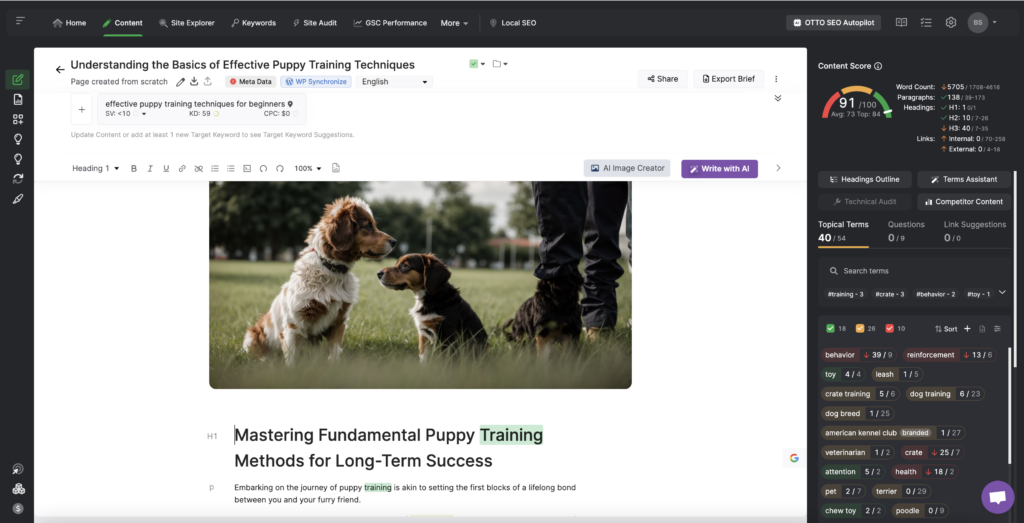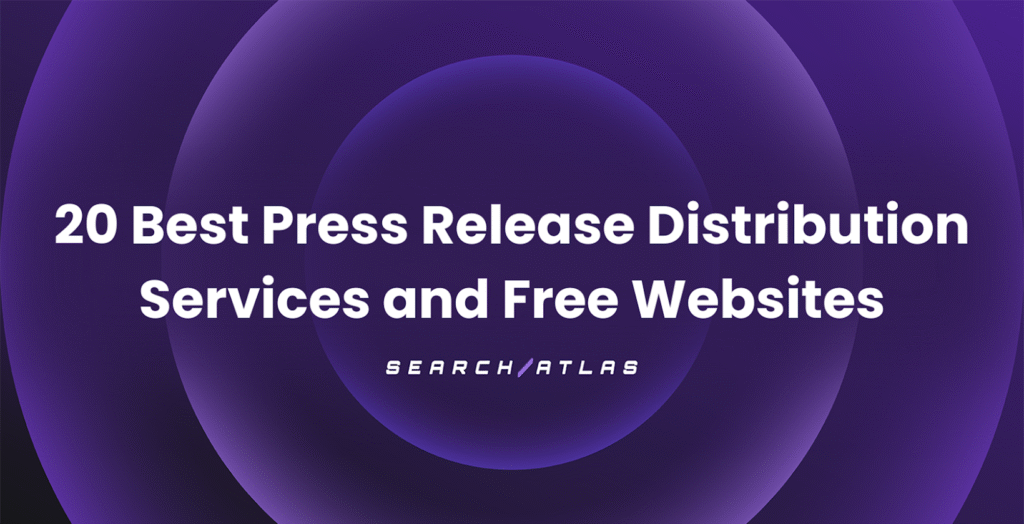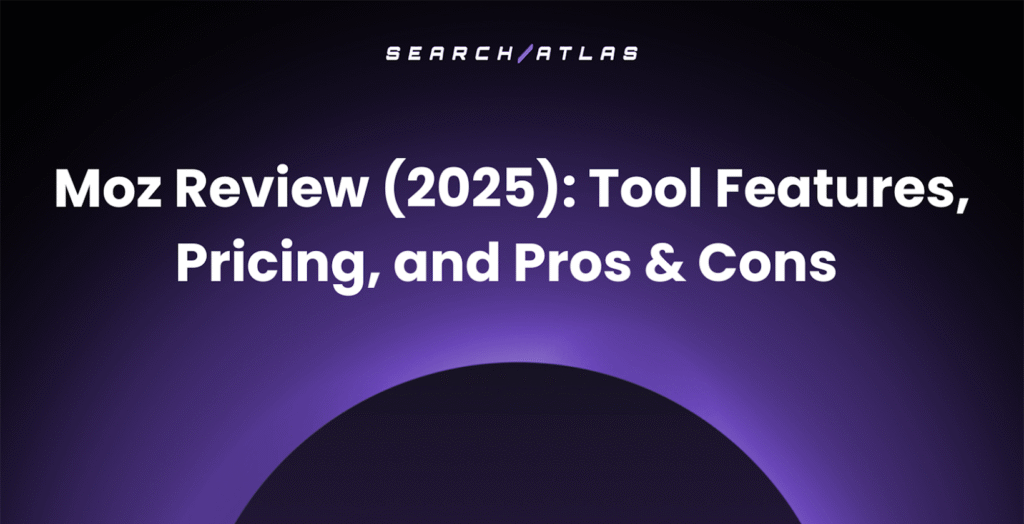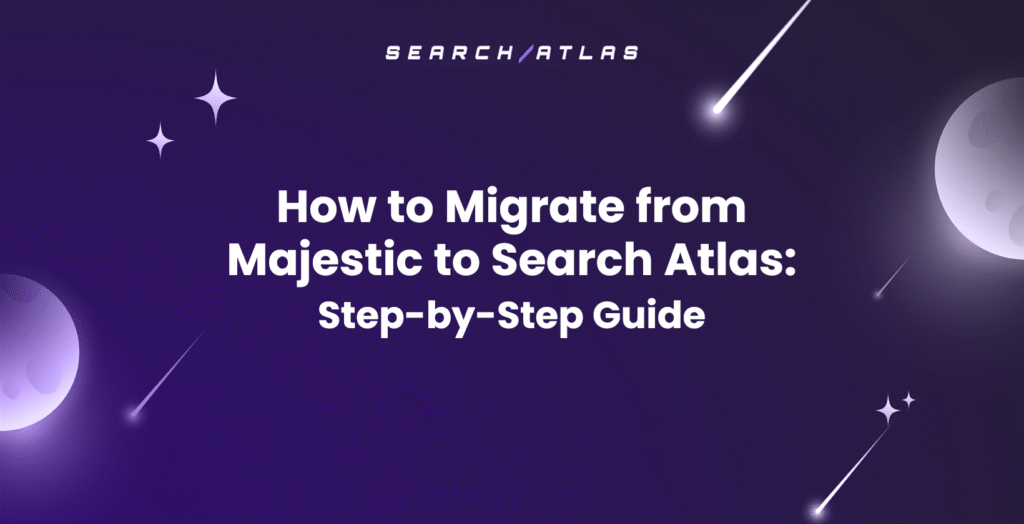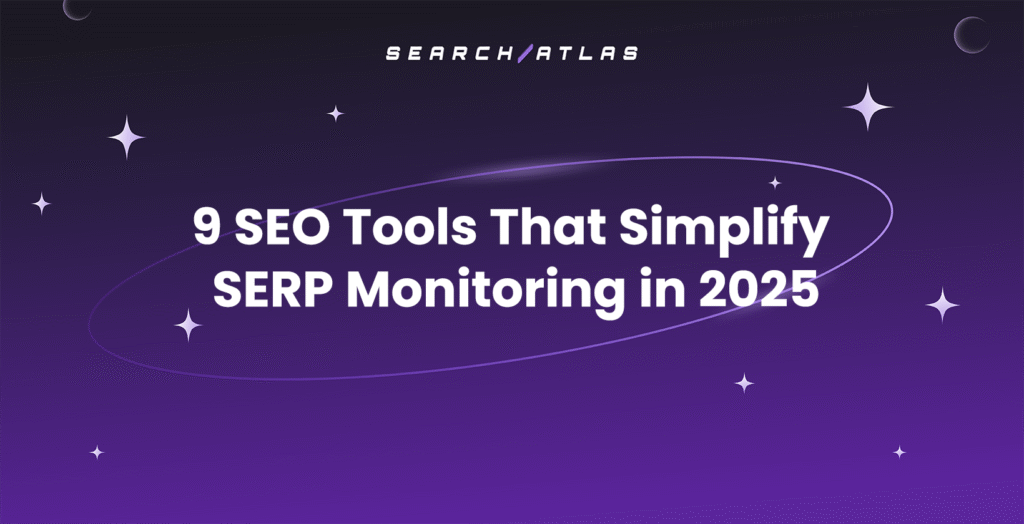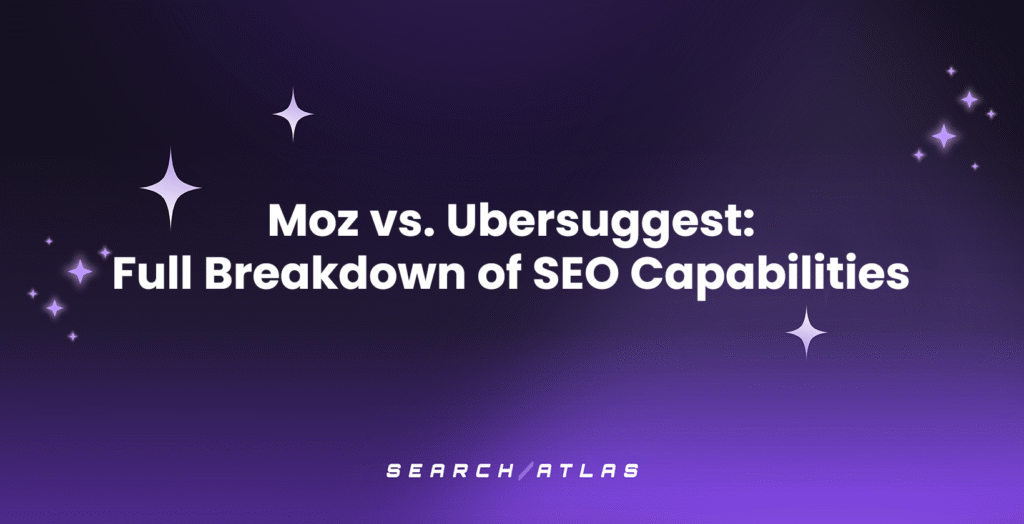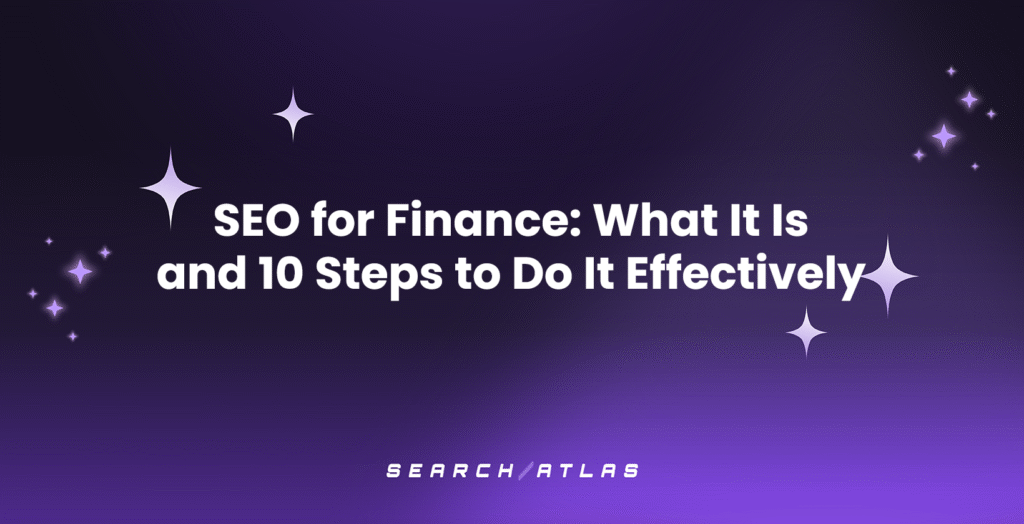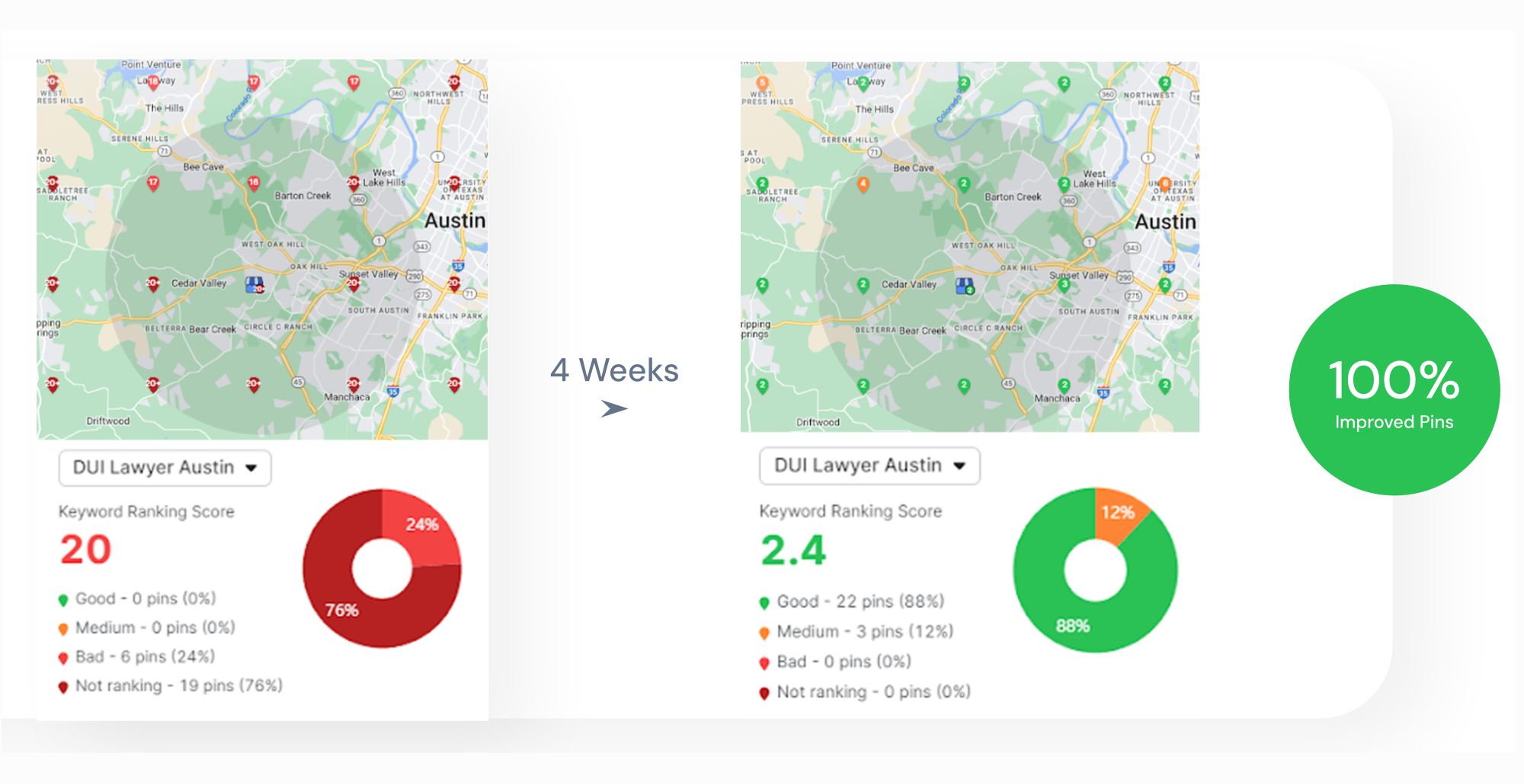Understanding your competitors’ strategies is the key to staying ahead. However, the sheer volume of data and the need for continuous monitoring can make this a daunting task. 😩
AI competitor analysis is reshaping the way businesses understand their rivals, making the process faster, smarter, and far more cost-effective.
The AI tools dive deep into your opponents’ data using competitor research tools to get insights you might otherwise miss.
Whether you’re launching or scaling your business, AI competitor analysis empowers you to position yourself strategically, refine your goals, and make data-driven decisions.
With 2025 bringing even more innovation to SEO, there’s never been a better time to explore the best AI competitor analysis tools. But what exactly is AI competitor analysis? Why is it important for SEO? Which AI tools can help you succeed? Let’s dive in!

What Is AI Competitor Analysis?
Competitor analysis is a process that involves monitoring your competitors’ strategies to evaluate how your business performs relative to others in your industry.
AI-powered competitor analysis tools automatically collect and process these vast amounts of real-time data, identifying meaningful patterns and trends. 📈
This automation not only ensures higher accuracy but also provides deeper insights that develop more effective approaches that give you a competitive advantage.
Why Is It Important for SEO?
SEO competitor analysis is about digging into rival websites to uncover their strategies and tactics. It’s your chance to benchmark your performance, learn what works, and find areas where you can outshine them. ✨
Here’s why it matters:
- Replicate Success: Adapt your competitors’ winning tactics to boost your own results.
- Exploit Weaknesses: Spot their gaps and use them to gain an edge on your content planner.
- Find Opportunities: Identify missed chances or content gaps to improve your strategy.
How to Perform an AI SEO Competitor Analysis?
Conduct an SEO competitor analysis every 3–6 months to identify market changes and refine your strategy. It’s especially helpful before launching new products or services to understand the market you’re entering or after a rankings drop to uncover potential issues.
Identify Your SEO Competitors to Know Who to Analyze
Your SEO rivals are the sites ranking on page one for the keywords you’re targeting. They might not be the same as your brick-and-mortar competitors and can vary based on your products, services, or blog topics.
To find your SEO competitors, search your target keywords on Google and note the websites that frequently rank. Alternatively, use the Site Explorer tool to analyze your competitors’ domains, including organic and paid traffic, keywords, backlinks, competitive metrics, and other metrics.

Remember, SEO competitors might not always be direct business rivals. For instance, an industry publication may not sell your products but could still divert valuable search traffic from your site.
Find Keyword Gaps to Discover Opportunities
Keyword gaps are opportunities where competitors rank for keywords you don’t, offering a chance to attract more traffic.
Use the Keyword Gap tool to find these gaps. Simply enter your domain and your competitors, then confirm to see keywords all competitors rank for, but you don’t.

Refine your results with filters like:
- Position: Focus on keywords where competitors rank in the top 10 for higher relevance.
- Volume: Target high-search-volume keywords to maximize traffic and awareness.
- Keyword Difficulty (KD): Prioritize “Very easy” to “Easy” keywords for quick wins.
- Intent: Choose transactional keywords for sales or informational ones for blog content.
- Advanced filters: Narrow results by including specific terms related to your niche.
Save high-potential keywords to a list, and create a strategy to target them effectively.
Check Your Competitors’ Content and Improve Upon It
Thoroughly analyze your competitors’ strengths and weaknesses to uncover where your SEO efforts can make the biggest impact.
One way to do it is to evaluate competitors’ top-performing content to see what resonates. You can use Scholar to do a complete content SEO analysis on factors like clarity, effort, information gain, and user intent.
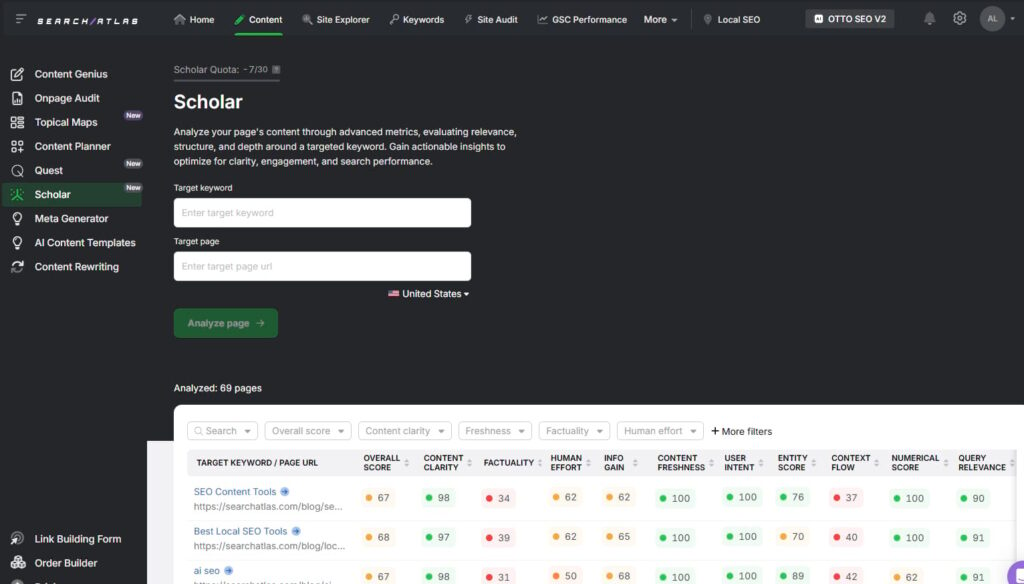
Also, check their website to find patterns: Are they producing long-form articles, visuals-heavy content, or blog posts? Use these insights to shape your content strategy, improving on what’s already working.
Discover Backlink Gap Opportunities to Enhance Your Authority
Analyze your competitors’ backlink profiles to see which sites link to them and why. If reputable sites link to your competitors but not to you, that’s a backlink gap worth filling. Backlinks are key for SEO, helping Google gauge authority.
Use off-page SEO tools, like Link Gap Analysis, to quickly find sites linking to your competitors. Focus on high-authority, relevant sites and ensure the links are “dofollow” for SEO value.
[insert image of search atlas link gap analysis tool]
To close the gap, replicate what’s worked for your competitors, like getting featured in a roundup or doing an interview.
What to Look for in an AI Competitor Analysis Tool?
Not all AI competitor analysis tools are the same. Some automate more tasks, while others offer limited features or lack innovation. The key difference is in the tools they provide and how well they adapt to changes in SEO.
The ideal AI competitor analysis tool should offer a complete suite of features, providing all the necessary tools to fully understand your competitors’ strategies. It must deliver precise, real data directly from Google (no estimates or approximations) ensuring you make informed, reliable decisions.
The tool should come with an intuitive, user-friendly dashboard, so your team can get started without lengthy training sessions. A seamless experience means more time focusing on strategy and less time navigating complex interfaces.
Instead of manually checking rankings, your tool should automatically track your competitors after major Google updates, saving you time.
For instance, an AI can identify changes in keyword rankings, backlinks, and content strategies, making changes to your website quickly.
This means you can focus on long-term strategy while your tool handles the updates, optimizing your website without extra effort.
Top 5 AI Tools for Competitor Analysis to Use in 2025
AI competitor analysis tools can differ widely in how they work, automate tasks, and present data. Some offer deep insights, while others focus on speed or simplicity. It’s important to choose wisely based on your needs
Here’s our comparison of top tools with accurate data and innovative features to keep you ahead in 2025!
1. Search Atlas

Search Atlas offers everything you need for complete competitor analysis, from site exploration to automated optimization. With features like Site Explorer, Keyword Gap, Backlink Analyzer, and Scholar, you’ll get a 360-degree view of your competitors’ strategies.
In Site Explorer, you can assess competitor authority, organic and paid search performance, keyword position history, backlink, and referring domain count, and track these metrics over time.
Backlink research and link gap analysis allow you to pinpoint valuable backlinks your competitors have that you can acquire.
Scholar takes competitor content analysis to the next level, helping you understand how their content is driving views, rankings, and conversions. It shows you what’s working and where you can improve.
OTTO, Search Atlas’ AI assistant, automates much of the heavy lifting—analyzing your SEO strategy, top SERPs, and optimizing content, on-page elements, and technical SEO. It also automatically adapts to Google’s algorithm updates, ensuring you stay competitive.
Popular Features
- Ideal for businesses of all sizes: Scale seamlessly from small websites to large enterprises.
- Scholar: Evaluate your competitors’ content using advanced metrics to assess its relevance, structure, and depth around a specific keyword.
- Site Explorer: Provides valuable insights into competitors’ backlinks, keywords, and overall site performance.
- Keyword Gap Analysis: Identify areas where competitors outperform you and strategically target them.
- Research Competitors: Discover which keywords and pages are driving the most traffic to your competitors.
- Backlink Gap Analysis: Find untapped backlink opportunities by comparing competitor profiles.
- Audit Your Competitor: Audit any website to find what are their technical and content strengths and weaknesses.
Limitations
- With so many tools available, SEO beginners may feel overwhelmed, but dedicated tutorials, support, and onboarding calls are here to guide you.
- Due to its rapid growth, Search Atlas faced some instabilities, but it is now becoming more stable to effectively support a growing number of clients.
Pricing
| Starter $99 Monthly | Growth $199 Monthly | Pro $399 Monthly | |
|---|---|---|---|
| Free OTTO Activation | 1 | 1 | 3 |
| GSC Projects | 5 | 15 | Unlimited |
| GBP Accounts | 3 | 10 | 25 |
| User Seats | 2 | 3 | 5 |
| Keyword, Competitor & Backlink Research Tools | ✅ | ✅ | ✅ |
| Competitor Research Credit | 2,000 | 200,000 | 500,000 |
| Keyword Research Lookups | 500 | 2,000 | 5,000 |
Reviews
- G2: 4.8/5 (91 reviews)
- Capterra: 4.9/5 (63 reviews)
2. Moz Pro
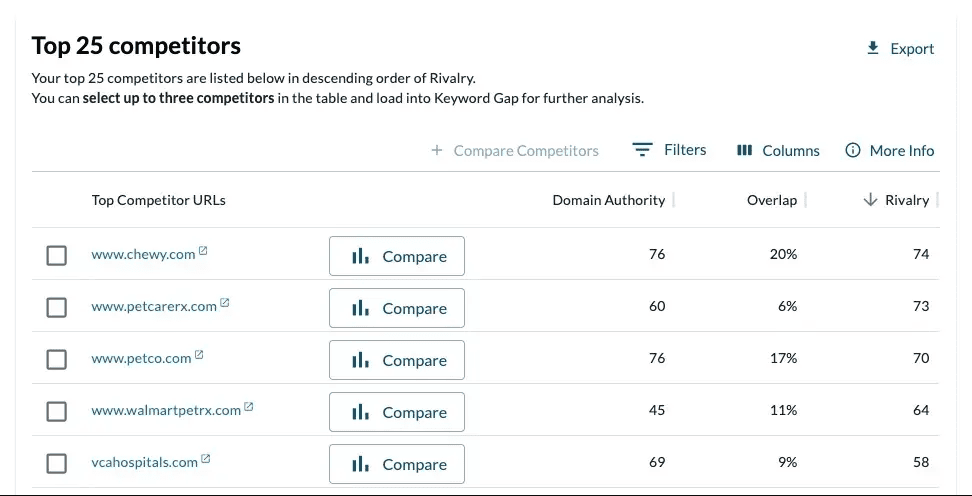
Moz Pro is an AI-powered SEO platform designed to simplify competitor analysis with its extensive features and large database.
It offers in-depth tools to uncover competitors’ strategies, focusing on critical aspects like keyword rankings, backlinks, and content. One standout feature is the Keyword Gap analysis, which gives access to a vast database of keyword suggestions.
This allows users to pinpoint ranking keywords that competitors are targeting, helping to identify gaps and new opportunities.
Moz Pro also provides insights into SERP positioning, backlink strategies, and content tactics, allowing users to track their competitors’ performance and uncover potential areas for improvement.
Popular Features
- Rivalry: Uses inputs like your Domain Authority, your competitor’s Domain Authority, keyword overlap, search volume, and rankings to identify your key competitors.
- Link Explorer: Analyze your competitors’ backlink profiles to gain insights into their link-building strategies.
- Educational Content: Access to guides, tutorials, and a supportive community to help answer questions.
- SERP Analysis: Uncover your competitors’ highest-ranking keywords and pages to stay ahead of the curve.
- Keyword Gap: Compare keywords your competitors rank for with the terms your site is missing.
- Domain Overview: Examine your competitors’ domain authority, top links, and spam scores to gauge their online presence.
Limitations
- Some users note that competitor content analysis isn’t included.
- Sometimes the data on new competitors or specialized market segments can be limited.
Pricing
- Starter Plan: $49 monthly – 1 user included, 1 tracked site, 50 tracked keywords per month, 20K pages crawled per month.
- Standard Plan: $99 monthly – 1 user included, 3 tracked sites, 300 tracked keywords per month, 400K pages crawled per month.
- Medium Plan: $179 monthly – 2 users included, 10 tracked sites, 1,500 tracked keywords per month, 2M pages crawled per month.
- Large Plan: $299 monthly – 3 users included, 25 tracked sites, 3,000 tracked keywords per month, 5M pages crawled per month.
Moz Pro reviews
- G2: 4.3/5 (568)
- Capterra: 4.5/5 (348)
3. SE Ranking
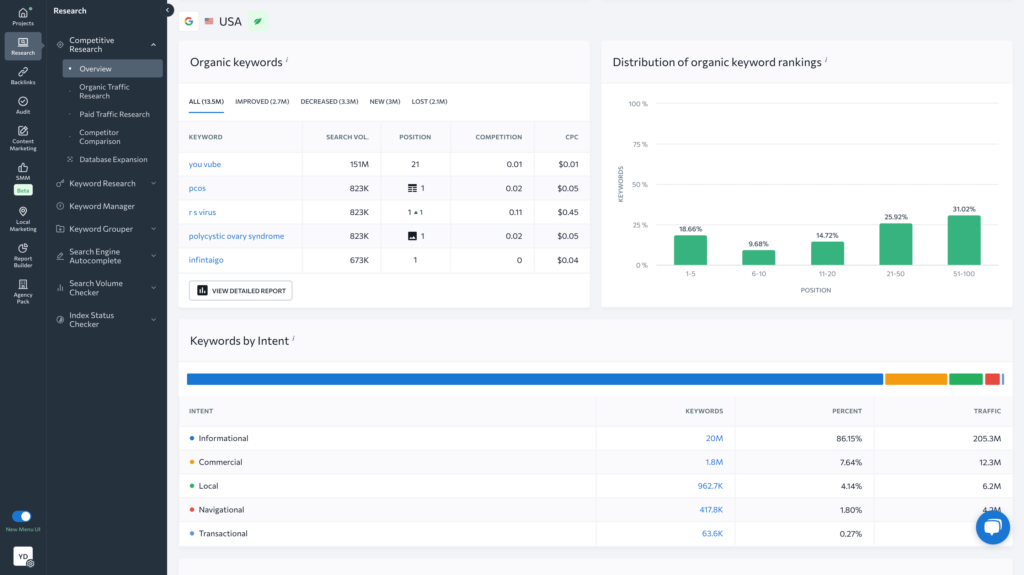
SE Ranking is an AI-driven SEO platform designed to assist businesses in optimizing their online presence. With a focus on competitor analysis, it helps identify keywords that drive traffic to rivals, while also tracking their backlink profiles and Google Ads campaigns.
The platform analyzes competitors’ strategies and provides actionable insights to enhance your own SEO efforts. SE Ranking also covers site audits and technical issue detection, ensuring a holistic approach to SEO performance.
By offering comprehensive backlink analysis, it delivers a clear view of what’s working for competitors, helping you refine your own strategy.
Popular Features
- Organic Competitor Analysis: Examine your competitors’ top pages and keywords to uncover strategies that can boost your own rankings.
- Paid Competitor Analysis: Analyze your competitors’ paid ad strategies to optimize your Google Ads campaigns.
- SERP Analyzer: Assess how competitors rank for target keywords and identify gaps in their strategy.
- Keyword Rank Tracker: Track your and your competitors’ keyword rankings to monitor SEO performance.
- Backlink Checker and Backlink Monitor: Analyze and track the status of competitors’ backlinks for better link-building insights.
- Backlink Audits: Audit competitors’ backlinks to find issues and new link-building opportunities.
Limitations
- Reviews sometimes say the rankings reports are not accurate.
- Some users say it lacks advanced AI analysis capabilities.
Pricing
- Essential Plan: $65 monthly, 1 manager seat, 5 projects, 500 keywords to track daily
- Pro Plan: $119 monthly, 3 manager seats, 30 projects, 2,000 keywords to track daily
- Business Plan: $259 monthly, 5 manager seats, unlimited projects, 5,000 keywords to track daily
SE Ranking reviews
- G2: 4.8/5 (1,346 reviews)
- Capterra: 4.7/5 (284 reviews)
4. Semrush
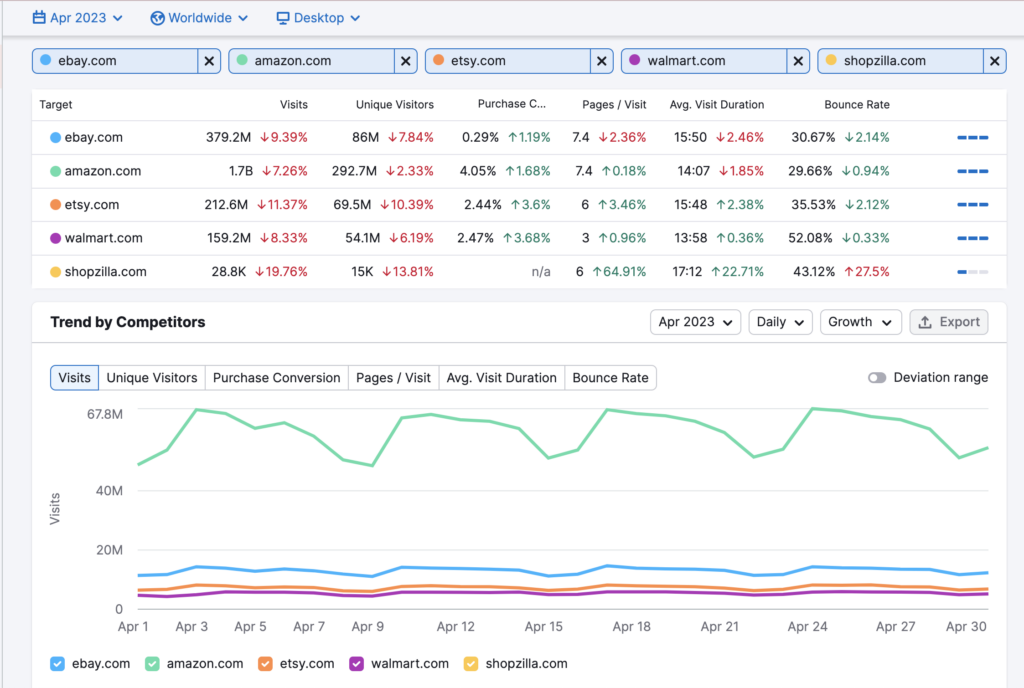
Semrush is a digital marketing platform designed to provide comprehensive insights for SEO, PPC, and content marketing.
Its AI-powered competitor analysis tools deliver in-depth intelligence on SEO strategies, offering valuable data about competitors’ backlinks, top-ranking keywords, and overall site performance.
By analyzing competitor data, Semrush helps identify gaps in your SEO strategy and uncovers opportunities to improve rankings. The platform also tracks keyword positions, monitors changes in competitors’ performance, and reveals strategies driving their traffic.
Popular Features
- Organic Research: Enter a competitor’s domain to access insights on their organic search rankings and position shifts.
- Keyword Gap: Compare up to five competitors and find keyword gaps to target.
- Backlink Analytics: Analyze your competitor’s backlinks to discover new opportunities for your site.
- Backlink Gap: Compare competitor backlink profiles to uncover link building opportunities in your niche.
- Position Tracking: Track your site’s rankings on Google’s SERP and monitor the performance of key search terms.
Limitations
- Some users find Semrush complex, especially for beginners, due to its extensive features.
- Other users feel its pricing is high, particularly for smaller businesses, startups, or individual marketers.
Pricing
- Pro Plan: $139.95 per month, 5 projects, tracking up to 500 keywords, and checking up to 10,000 results per report.
- Guru Plan: $249.95 per month, 15 projects, tracking up to 1500 keywords, and checking up to 30,000 results per report.
- Business Plan: $499.95 per month, 40 projects, tracking up to 5000 keywords, and checking up to 50,000 results per report.
Semrush reviews
- G2: 4.5/5 (2,295 reviews)
- Capterra: 4.7/5 (2,259 reviews)
5. Ahrefs
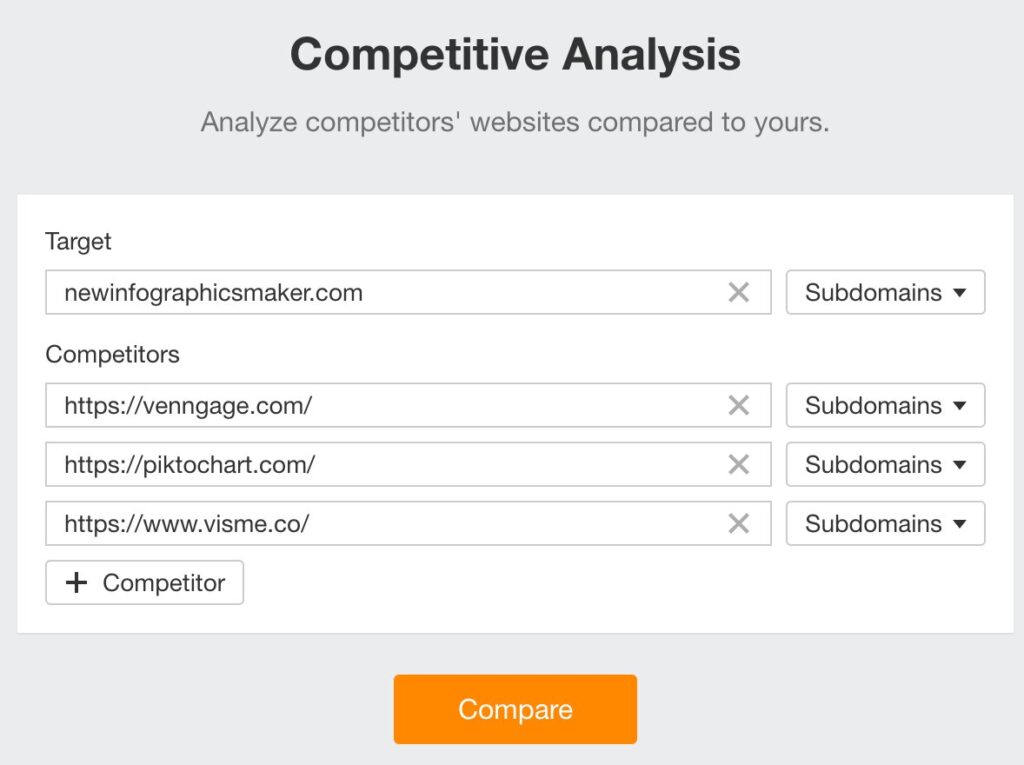
Ahrefs leverages AI to streamline the process of backlink tracking, anchor text analysis, and keyword discovery. Through its dashboard, the platform offers automated insights, enabling users to analyze competitor strategies in detail.
Ahrefs’ AI-powered competitor analysis helps identify top-ranking content in your niche, uncovering valuable backlink opportunities and revealing SEO strategies that can boost your own performance.
The platform focuses on actionable data that helps businesses refine their marketing tactics for better visibility and results.
Popular Features
- Content Explorer: Discover high-performing content in your niche and analyze why it ranks well.
- Backlink Analysis: Analyze competitor backlink profiles to find new opportunities and discover their most valuable links.
- Keyword Gap: Compare your keyword rankings with competitors to identify missed opportunities and strategic gaps.
- Site Explorer: Analyze a competitor’s website traffic, backlinks, and keyword rankings for comprehensive insights.
- Top Pages: Identify which pages on a competitor’s site generate the most organic traffic and backlinks.
- Cross-Platform Research: Conduct keyword research on up to 10 platforms, including Google, YouTube, Amazon and Baidu.
Limitations
- Some reviews say some of the data provided is not totally accurate compared to Google.
- A few users say that many keywords for niche markets aren’t crawled very often or not at all.
Pricing
- Lite Plan: $129 monthly – 5 projects, 6 months of history, 750 tracked keywords, 50 keyword lists, 100,000 crawl credits, 25,000 max pages per project
- Standard Plan: $249 monthly – 20 projects, 2 years of history, 2,000 tracked keywords, 100 keyword lists, 500,000 crawl credits, 50,000 max pages per project
- Advanced Plan: $449 monthly – 50 projects, 5 years of history, 5,000 tracked keywords, 200 keyword lists, 1.5M crawl credits, 250,000 max pages per project
- Enterprise Plan: $14,990 yearly – 100 projects, unlimited history, 10,000 tracked keywords, 500 keyword lists, 5M crawl credits, 5M max pages per project
Ahrefs reviews
- G2: 4.5/5 (546 reviews)
- Capterra: 4.7/5 (571 reviews)
Lead the SEO Race With the Best AI Competitor Analysis Tool
Competitor analysis is a crucial step for any business, regardless of size or industry, as it provides invaluable insights into how your competitors are succeeding in their markets, especially within the SEO industry.
However, this process is complex and requires careful attention to detail, making it essential to leverage AI-powered tools for efficiency. 🤖
Search Atlas not only provides all the necessary tools for a thorough competitor analysis but also features OTTO, which automates much of your work in keyword research, content planning, writing, optimization, and staying up to date with Google algorithms.
Don’t miss out on this opportunity to streamline your SEO efforts and gain a competitive edge. Start your free trial of Search Atlas today!


